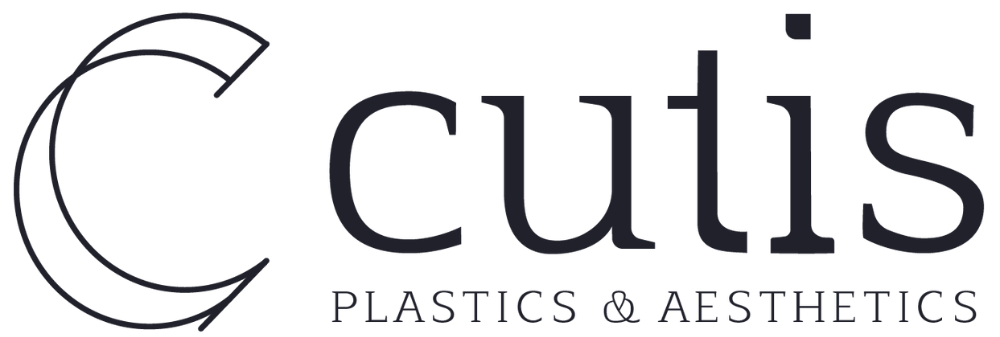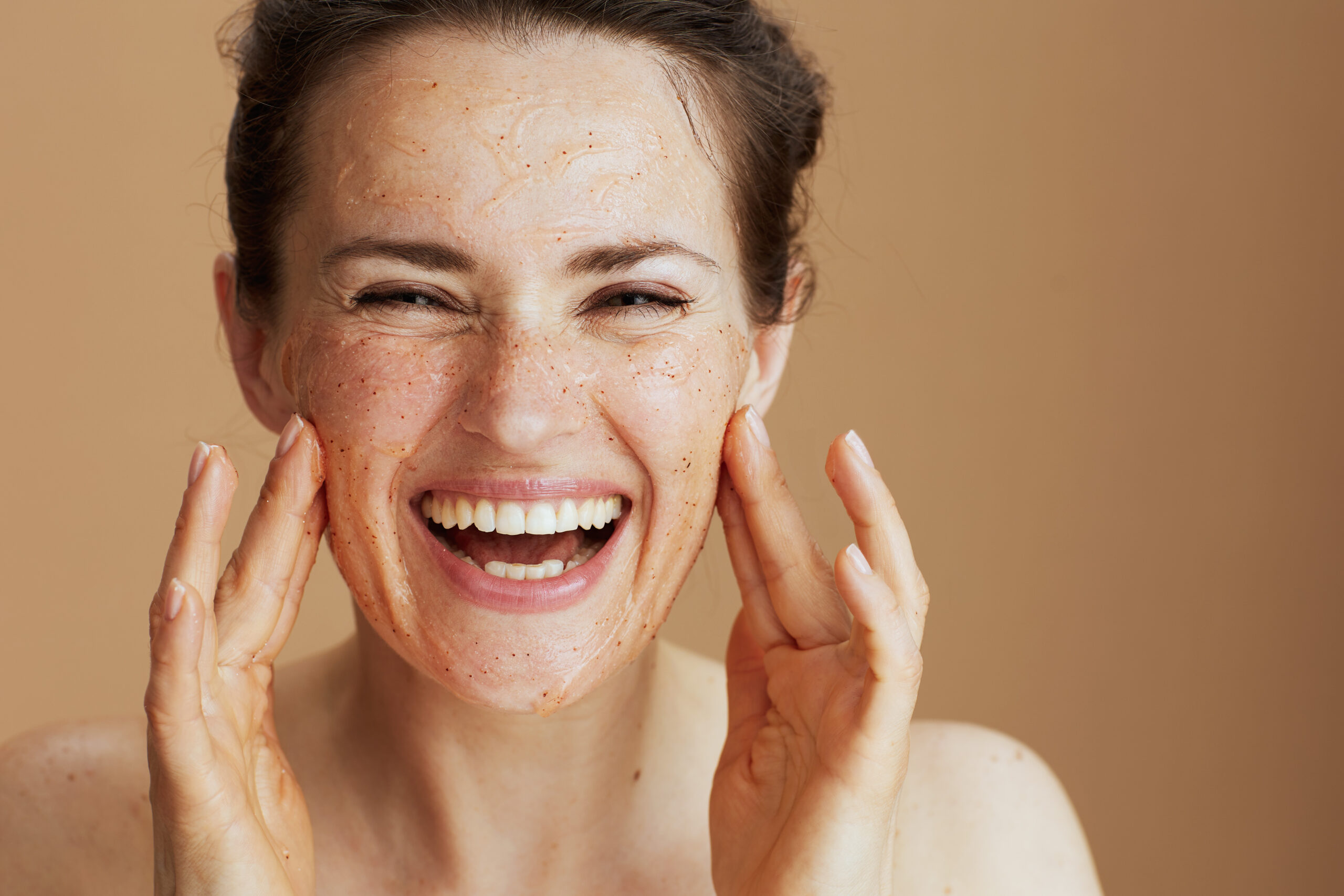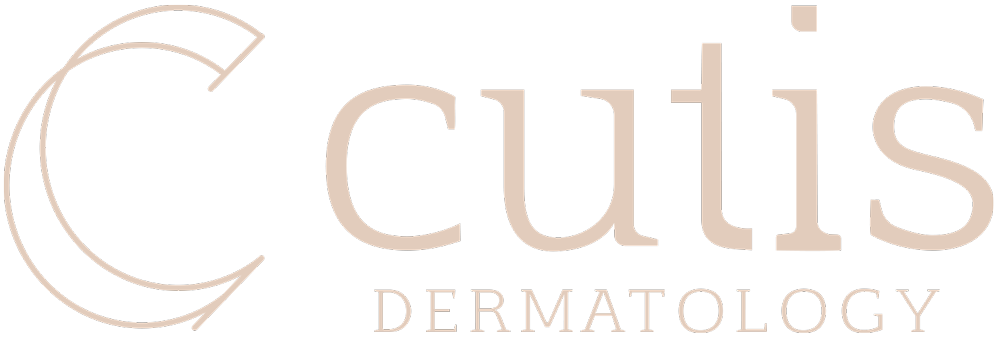How to Exfoliate Your Skin
Exfoliating your skin is a crucial step in achieving a healthier and more vibrant complexion. This practice offers numerous benefits, such as improved skin texture, reduced fine lines and wrinkles, a clearer complexion, diminished dark spots, enhanced product absorption, and better makeup application. However, it’s essential to exfoliate cautiously to avoid potential irritation, dryness, or redness.
Here’s a comprehensive guide on how to exfoliate effectively, including the frequency, types of exfoliants, and specific methods.
What are the benefits of exfoliating?
Exfoliating the skin yields various advantages, promoting a radiant and youthful appearance. It smooths out rough textures, stimulates collagen production for a more youthful look, unclogs pores for a brighter complexion, lightens dark spots, and aids in the absorption of skincare products. Furthermore, makeup application becomes smoother and more enduring on exfoliated skin. However, it’s crucial to exercise caution and gradually increase exfoliation frequency as your skin adapts.
How often should I exfoliate?
For optimal results, we recommend to exfoliate once or twice a week. However, individual skin types and sensitivities play a crucial role in determining the appropriate frequency. Those with sensitive skin should start with less frequent exfoliation or choose gentler products, while individuals with oily or acne-prone skin may exfoliate more often. Always adapt the frequency based on your skin’s response.
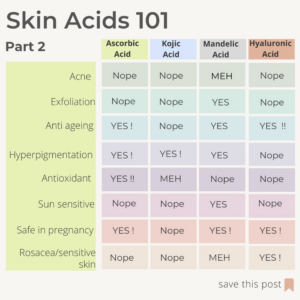
How long until I see the results of regular exfoliation?
Results from regular exfoliation vary among individuals. Some may notice improvements within days, particularly in skin texture, while others may require several weeks.
For people with acne, it may take up to 8 weeks to see an improvement in the condition of their skin. For anti-aging benefits, it may take even longer to see the results. In general, consistent and regular exfoliation is important for maintaining the benefits of exfoliation.
What types of exfoliants are there?
The best exfoliant for you will depend on your individual skin type and concerns. However, here are some common types of exfoliants that are popular and considered effective by many:
- Physical exfoliants: These exfoliants use small particles or granules to scrub away dead skin cells. Examples include scrubs made with sugar, salt, or ground nuts. Personally, I dislike physical exfoliants, especially if you are starting out.
- Chemical exfoliants:These exfoliants use acids or enzymes to dissolve the bonds between dead skin cells, allowing them to be easily removed. Examples include alpha-hydroxy acids (AHAs) like glycolic acid and beta-hydroxy acids (BHAs) like salicylic acid.
- Enzymatic exfoliants:These exfoliants use enzymes to dissolve the proteins that hold dead skin cells together. Examples include papain, bromelain, and pumpkin enzymes.
It’s always a good idea to start with a lower strength and frequency of exfoliation and increase as your skin adapts. It’s also important to use sunscreen and moisturizer after exfoliating to protect your skin.
It’s also important to note that some exfoliants may not be suitable for certain skin types or conditions, so it’s always a good idea to consult a dermatologist before starting an exfoliation routine.
How do I exfoliate effectively?
Different exfoliants require specific application techniques. For alpha-hydroxy acid (AHA) like glycolic acid or lactic acid, cleanse, apply, leave for recommended time, and rinse. Beta-hydroxy acid (BHA) such as salicylic acid follows a similar process. Retinoids, including retinol, increase cell turnover and require cautious application.
Physical exfoliation using brushes or mitts involves circular motions, especially for kessa mitts. Adjust the frequency based on your skin’s needs.
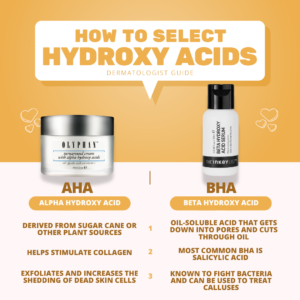
For an Anti-Aging Exfoliation Routine, Incorporate exfoliation into an anti-aging skincare routine involving gentle exfoliants, maintaining regularity, employing anti-aging products, and applying exfoliants in the evening for optimal skin repair. Consult with one of our dermatologists for personalized advice.
Exfoliation caution warning
Exfoliation Cautions and Considerations: Exfoliation may not be suitable for everyone. Those with sensitive skin, rosacea, eczema, active acne, recent chemical peels or laser treatments, or sunburned or windburned skin should avoid or consult a dermatologist before exfoliating.
